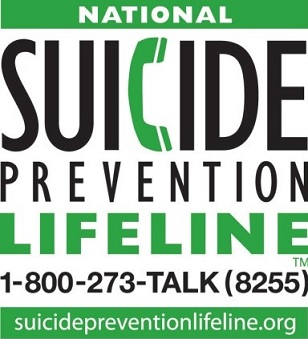Hopelessness
 Hopelessness is an emotion characterized by a lack of hope, optimism, and passion. An individual who feels hopeless may often have no expectation of future improvement or success.
Hopelessness is an emotion characterized by a lack of hope, optimism, and passion. An individual who feels hopeless may often have no expectation of future improvement or success.
What Is Hopelessness?
Hopelessness is a powerful emotion that often contributes to a dark or low mood and may adversely affect the way one perceives the self, other individuals, personal circumstances, and even the world. Often hopelessness can have a significant influence on human behavior, as it may reflect an individual’s negative view of the future.
Feelings of hopelessness can often lead an individual to lose interest in important objects, activities, events, or people. Someone who has become hopeless may no longer value things that were once important. The emotion is often associated with a lack of inspiration as well as feelings of powerlessness, helplessness, abandonment, captivity, oppression, and isolation. Numerous studies indicate that hopelessness is closely linked to poor mental, emotional, and physical health.Causes of Hopelessness
Hopelessness may be a symptom of a variety of mental health conditions, or it may occur when an individual is discouraged by dissatisfying, distressing, or negative life events.
One survey, conducted among 1000 people who had been diagnosed with a psychiatric condition, shows that some messages of hopelessness may actually originate from the mental health care system. Of those who completed the survey, 41% reported being told by a health care professional that recovery from their distress was unlikely or impossible, in spite of the fact that many individuals, including those experiencing extreme mental and emotional distress, are able to achieve stable wellness through therapy. Sixty-nine percent of these individuals later self-reported themselves to be “recovered” or “fully recovered.”
How Hopelessness Can Affect Mental Health
Hopelessness is listed as a symptom of many behavioral and mental health issues, including depression, anxiety, bipolar, eating disorders, posttraumatic stress, substance dependency, and suicidal ideation. Many people who experience hopelessness may also be affected by mental health issues such depression. Feelings of hopelessness that occur with a condition such as depression may lead an individual to have thoughts of suicide.
Hopelessness may not always occur with a particular condition, but no matter the cause, feelings of hopelessness can be devastating. Not only does the emotion compromise an individual’s sense of well-being and stability, it may also rob a person of the motivation required to utilize available resources or seek help. 
People experiencing hopelessness may make statements such as:
- My situation will never get better.
- I have no future.
- No one can help me.
- I feel like giving up.
- It is too late now.
- I have no hope.
- I will never be happy again.
The Hopelessness Scale
In 1974, Dr. Aaron Beck designed the Beck Hopelessness Scale (BHS) with the aim of quantifying the feeling of hopelessness by examining an individual’s thoughts and beliefs about the future. The BHS, designed for those over the age of 17, comes in the form of a self-report questionnaire containing 20 true or false statements.
The responses to these statements are used to measure the three primary aspects of hopelessness: feelings about the future, decreases in motivation, and expectations. The BHS can also be used as a measure of suicidal risk among people with depression who have previously attempted suicide.
Therapy for Hopelessness
Hopelessness can be distinguished by inhibited motivation, a lack of interest, negative thoughts about the future, or a negative view of the self. These feelings may become worse depending on a person’s mood.
Cognitive therapy, also developed by Beck, has proven to be one effective treatment for those experiencing hopelessness. This type of therapy targets an individual’s negative thoughts and assumptions. As cognitive therapy requires that individuals in treatment carefully analyze the validity of their assumptions, those dealing with feelings of hopelessness may initially be resistant to the approach. However, therapists can often overcome this obstacle by first working with the person in therapy to address these feelings, often by focusing on self-esteem enhancement.
Numerous studies show that therapy is often able to help those experiencing hopelessness regain their hope and achieve lasting mental wellness.
References:
- Department of Psychiatry Penn Behavioral Health. (n.d.). Beck scales and inventories. Retrieved from http://www.med.upenn.edu/suicide/beck/scales.html
- Hanna, D., White, R., Lyons, K., McParland, M. J., Shannon, C. & Mulholland, C. (2011). The structure of the beck hopelessness scale: A confirmatory factor analysis in uk students. Personality and Individual Differences, 51, 17-22. Retrieved from http://www.researchgate.net/profile/Ciaran_Mulholland/publication/251531364_The_structure_of_the_Beck_Hopelessness_Scale_A_confirmatory_factor_analysis_in_UK_students/links/54394f760cf2d6698be16245.pdf
- Li, S. L. (2007). Application of cognitive therapy to hopelessness depression. Asian Journal of Counselling, 14(1-2), 125-140. Retrieved from http://hkier.fed.cuhk.edu.hk/journal/wp-content/uploads/2009/10/ajc_v14n1-2_125-140.pdf
- MindFreedom International. (2012). Hope in mental health care survey. Retrieved from http://igotbetter.org/campaign/i-got-better/learnings/igb-exc-sum
- Panagioti, M., Gooding, P. A. & Tarrier, N. (2012). Hopelessness, defeat, and entrapment in posttraumatic stress disorder: Their association with suicidal behavior and severity of depression. The Journal of Nervous and Mental Disease, 200(8), 676-683. DOI: 10.1097/NMD.0b013e3182613f91. Abstract retrieved from http://www.ncbi.nlm.nih.gov/pubmed/22850302
Last Updated: 06-19-2018
- 8 comments
- Leave a Comment
Ile
March 9th, 2016 at 11:55 AMI am taking a master’s degree class on Human Development and I am doing a group project on parental suicide. I am curious to know do parents seek therapy to live for their children.
Kris
October 4th, 2016 at 12:21 AMI would say no.
No one understands this either.“Youve got children ”
Somehow its not enough to trigger that change.
Kmom
April 10th, 2017 at 6:12 PMI sought therapy for me because I knew eventually. Would commit suicide. My kids were the only light in a world getting darker. By saying , “you’ve got children” only makes you feel more like a failure, which compounds the depression.
Leave a Comment
By commenting you acknowledge acceptance of GoodTherapy.org's Terms and Conditions of Use.



